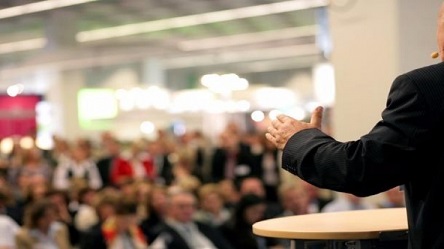
When I started working in communications in the late 1980s, the dominant forces of mass communication were advertising and media organizations. Back then it was a simpler world: advertisers created ads; placed them in newspapers or on TV; and told people what they wanted people to hear.
The public by and large passively consumed their news and information from the major media outlets, with huge audience and readership figures that today seem unbelievable.
It was broadcasting to many; and it was a one-way conversation – transmission but with no opportunity for response.
PR then was very much at the other end of the communications power scale, concerned mainly with relationships with journalist and winning third party endorsement through the soft power of persuasion and making oneself useful to those in positions of influence and power.
Spool forward 35 years and the balance of power see saw has well and truly reached its tipping point.
Advertising has declined as a power source for communications – and the media companies, while still incredibly powerful, now have many more competitors and far smaller audiences.
Meanwhile, PR has risen in the ascendancy to become not just the dominant force in communications, but a significant shaper of opinion and debate in our world; and, I would argue, a driving force for economic growth and social change.
The rise of communications has been driven by four main factors:
Firstly – the decline in trust in corporations and governments means that people are less and less influenced by advertising and direct communications
Secondly – As media organizations have cut staff to compete with new competitors and cope with declining advertising revenues, the numbers of PR people serving the media has grown dramatically.
In the US, for example, a study in 2010 by Fordham University in New York, estimated that the ratio of US PR professionals to journalists was four PR people for every one journalist.
In the UK, a similar study in 2012 showed the number of PR professional had exceeded the number of journalists by a similar factor to the US. The truth, never admitted by the media, is that PR professionals keep the media going, providing the vast majority of stories printed and broadcast every day.
Thirdly – a major change that saw the PR profession bloom, was the recognition by Chief Executives and senior politicians that reputation matters materially.
They woke up to the fact, mainly by witnessing other people’s disasters, that reputation issues and crises handled badly can wipe millions from stock values, lead to punitive fines, failure to win regulatory approval or can end political careers.
People running organizations know that reputation matters and that communication plays a major role in winning.
And finally, the rise of our profession has been carried on the wave of digital communications and the continuous 24 hour news cycle, in a world that wants its corporations and organizations to be transparent, responsive, listening and providing useful content – all the time and tailored almost on a personal basis.
The skills of PR people are well suited to the world of digital communications and social media. Our years developing media skills have prepared us well for the participative, less invasive style needed for social media to be effective.
Our advertising colleagues lack that deftness of touch so communications functions have tended to become the custodians of digital and social media communications in many organizations.
I believe PR can change the world. It is a force we have to use responsibly by engaging with our audiences openly and honestly as we increasingly become the news rather than trying to interrupt or influence the news.
Communications can change the world by helping the economic development of nations through presenting strong, consistent messages to drive inward investment or tourism or global trade.
It can improve people’s health and well being through responsible public information campaigns to change habits, increase access to information and services that can improve lives and well being.
Communications can help people save money, get better value for money, and deliver enhanced service levels that can grow business as a result.
PR people have the power to be the main force in shaping public debate and with that power comes responsibility and opportunity to use communications as a force for change, for business development and expansion – for the organizations we work for as well as for wider civil society.
Written by Chris Genasi,Managing Director of Grayling in Kenya

